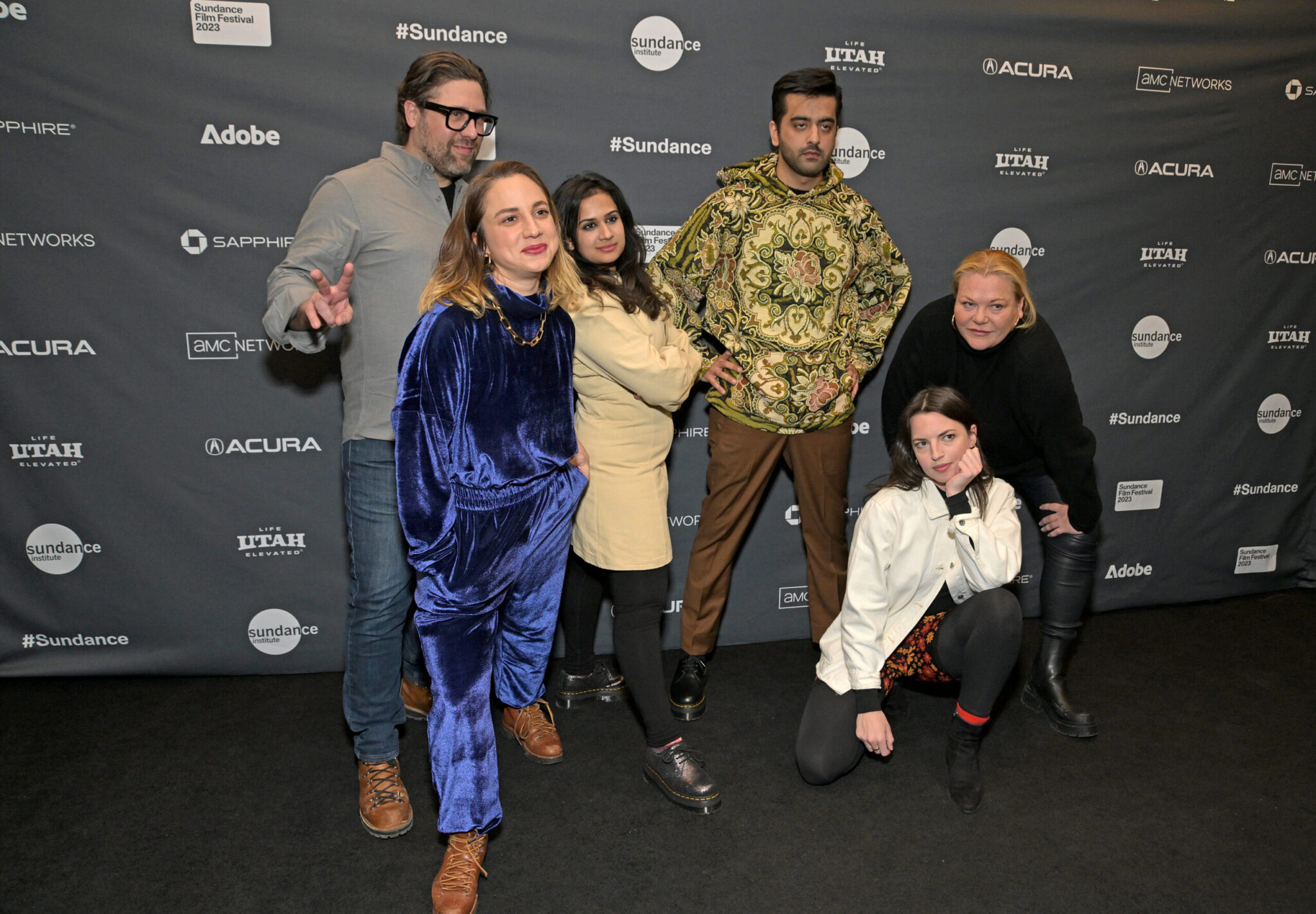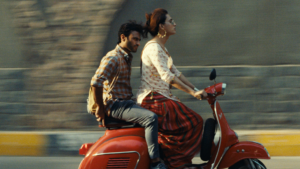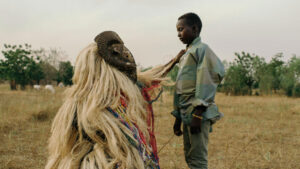PARK CITY, UTAH – JANUARY 21: (L–R) Nathan ruyle, Jasmin Tenucci, Apporva Guru Charan, Saim Sadiq, Maggie Briggs, and Katharina Otto-Bernstein attend the 2023 Sundance Film Festival “Joyland” premiere at the Park Avenue Theatre on January 21, 2023 in Park City, Utah. (Photo by Michael Tullberg/Getty Images)
By Lucy Spicer
Writer-director Saim Sadiq’s debut feature, Joyland, has the distinction of being the first Pakistani film to be selected as an entry at the Cannes Film Festival, where it won the Jury Prize in the Un Certain Regard section in 2022. Since its premiere, Joyland has continued to garner acclaim for its nuanced depiction of queer love, transgender identities, and the grave consequences of restrictive gender roles under an unyielding patriarchy.
“If I’m honest, I didn’t make the film with any sort of activism in mind,” confesses writer-director Saim Sadiq during the film’s post-screening discussion on January 21 at the Park Avenue Theatre in Park City, Utah. “Personally speaking, I’m far more interested in these people than making a film for the sake of a certain level of activism.”
Whether intentional or not, Joyland has sparked a wider discussion about trans identities in Pakistan. “Trans people have a big history in Pakistan,” says Sadiq. “They were actually part of royal courts. They were poets, they were artists, and they were very respected. It was after colonization that the discrimination came in, so we kind of have to unlearn that in our own way.”
Set in Lahore, Pakistan, the film revolves around the working-class Rana family, whose aging patriarch is desperate for a grandson. Morale is low when Nucchi (Sarwat Gilani), wife of the eldest Rana son, gives birth to yet another girl. Haider (Ali Junejo), the mild-mannered younger son, faces renewed pressure to find employment — he has been helping to take care of his nieces and domestic duties for years while his wife, Mumtaz (Rasti Farooq), is fulfilled in her work at a salon. When Haider gets a job as a backup dancer for Biba (Alina Khan), an alluring transgender star at an erotic theater, the cracks in the family’s traditional foundation begin to widen. As Haider explores his own desires, Mumtaz is left in free fall.
It’s easy to get quickly swept up in Joyland, where bright colors and purposeful lighting draw the eye in nearly every scene. Haider’s passionate, taboo love affair with a transgender woman drives the story initially, but we soon find ourselves wondering how well Haider really knows Biba, and whether or not he realizes what kind of consequences his actions (and inaction) have on those around him.
“[The film] starts out almost as a story of Haider, and then it becomes a romance, and it turns out not to be about that, really. What it really is about is either this ensemble of characters, or, if you had to really pick one character who this film is about, it’s Mumtaz,” explains Sadiq at the Q&A.
“But we had to balance these subjectivities between several characters, so we had to spend time with one, and then another, and then another. And we wanted an experience where you would ideally be able to empathize with each of them, even if they, when put together in a room, are kind of causing each other unintended — or intended — harm, emotionally speaking.”
At its heart, Joyland is about family, both biological and chosen. Sweet, sisterly interactions between Mumtaz and Nucchi provide welcome moments of levity, as do some of the small glimpses we get into Biba’s queer community. But, inevitably, the crushing weight of traditional gender roles takes its toll on the Rana family, and no one can be spared from the fallout.






